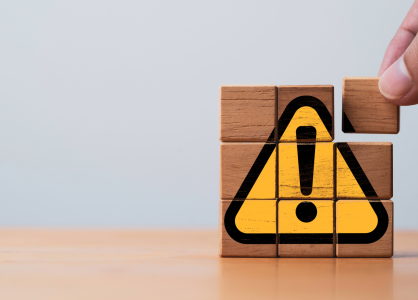Governance, that noble art of steering organizations toward success while maintaining order and ethics, has a lofty goal: to prevent chaos. But sometimes, instead of providing a smooth ride, governance takes a spectacular detour into disaster territory. And when it does, it gives us something equally valuable—lessons. Lessons on what not to do, why checks and balances matter, and, occasionally, a laugh or two at the absurdity of it all.
Today, we’re strapping on our time-travel goggles and visiting some of history’s most epic governance blunders. From the infamous missteps of corporations to political mismanagement that shook nations, these tales of woe reveal the critical role governance plays—and why a misstep can turn into a full-blown catastrophe.
Governance Gone Wild: The Highlights
1. Enron: The House of Cards
Enron was the darling of Wall Street in the late 1990s. The company seemed unstoppable—until its leadership’s creative accounting practices (a.k.a. massive fraud) unraveled in 2001. By hiding debt and inflating profits through shell companies, Enron painted a rosy financial picture that didn’t exist. When the truth came out, it led to the company’s collapse, devastating employees, investors, and the market.
Lesson Learned: Transparency is key. If your governance policies rely on deception, they’re more of a ticking time bomb than a safeguard.
2. Blockbuster’s Netflix Snub: Governance by Complacency
In 2000, Blockbuster, the reigning king of video rentals, had the chance to buy Netflix for $50 million. Blockbuster’s leadership laughed Netflix’s team out of the room. Fast-forward two decades, and Blockbuster is extinct, while Netflix is a global streaming powerhouse worth billions.
Lesson Learned: Governance isn’t just about avoiding mistakes; it’s about spotting opportunities. Resting on laurels is a surefire way to lose the race.
3. The Lehman Brothers Collapse: Risky Business
The 2008 financial crisis had many villains, but Lehman Brothers stands out as the poster child for poor governance. The investment bank’s reckless over-leveraging and heavy reliance on subprime mortgages led to its bankruptcy—the largest in U.S. history—and a domino effect that nearly brought the global financial system to its knees.
Lesson Learned: Risk management is a cornerstone of governance. Ignoring red flags isn’t bold—it’s disastrous.
4. Kodak’s Digital Denial: A Snapshot of Stubbornness
Kodak invented the digital camera in 1975 but buried the technology, fearing it would cannibalize its film business. Decades later, digital photography dominated, and Kodak filed for bankruptcy in 2012.
Lesson Learned: Governance must include foresight. Ignoring innovation is like ignoring an iceberg when steering a ship—it’s not going to end well.
5. FIFA’s Corruption Scandal: A Global Own Goal
FIFA, soccer’s governing body, became synonymous with bribery and corruption in 2015. Investigations revealed years of kickbacks for tournament bids, lavish spending, and a complete disregard for ethical governance.
Lesson Learned: Governance without accountability is like a soccer match without a referee—chaos is inevitable.
Funny Governance Blunders: Because We Need a Laugh
The Great Pizza Budget
A nonprofit once allocated half its annual budget to… pizza. Governance meetings became legendary for their gourmet pizza spreads, but eventually, someone realized that mozzarella was eating into mission-critical funds.
Lesson Learned: Good governance also means knowing when to cut the pizza.
The “Oops” Email
A CEO once accidentally CC’d the entire company on a scathing critique of the board. The fallout was, as you’d expect, spectacular.
Lesson Learned: Always check your recipient list. Governance fails start with small mistakes—like pressing “Send.”
The Robot Board Member
A startup tried to make a robot its official board member. The AI was supposed to provide unbiased advice, but it crashed during its first meeting and became the butt of jokes.
Lesson Learned: Governance needs human judgment, even in the age of AI.
The Core Pillars of Strong Governance
If these blunders teach us anything, it’s that governance isn’t just about avoiding embarrassment; it’s about creating structures that support long-term success. Here’s how to get it right:
- Transparency: Honesty builds trust. Ensure policies, decisions, and financial practices are crystal clear.
- Accountability: Everyone, from the CEO to the intern, should be held accountable for their actions.
- Foresight: Stay ahead of trends and innovations to avoid being left in the dust.
- Diversity of Thought: A diverse board makes better decisions by avoiding groupthink.
- Continuous Learning: Governance isn’t static—keep learning and adapting.
How MPG Helps Avoid Governance Blunders
At My Premium Governance (MPG), we don’t just learn from these failures—we create solutions to prevent them. MPG is your partner in building governance structures that are resilient, transparent, and adaptable.
Here’s how MPG supports your governance journey:
- Comprehensive Oversight Tools: From compliance checks to risk assessments, we provide the tools you need to stay on track.
- Customizable Governance Frameworks: Tailored solutions to meet the unique needs of your organization.
- Global Collaboration: Connect with governance professionals and learn from their experiences.
- Continuous Improvement Resources: Stay ahead of trends with our regular insights, training, and updates.
With MPG, governance isn’t a headache—it’s a superpower.
Governance failures, while often disastrous, offer invaluable lessons. From Enron’s collapse to Kodak’s missed opportunities, history is full of cautionary tales that highlight the importance of transparency, accountability, and foresight.
At MPG, we’re here to ensure your organization doesn’t become the next cautionary tale. Instead, we’ll help you write a success story built on solid governance foundations.
🔍 Visit My Premium Governance today and discover how we can help you steer your organization toward a brighter, blunder-free future. 🌟

